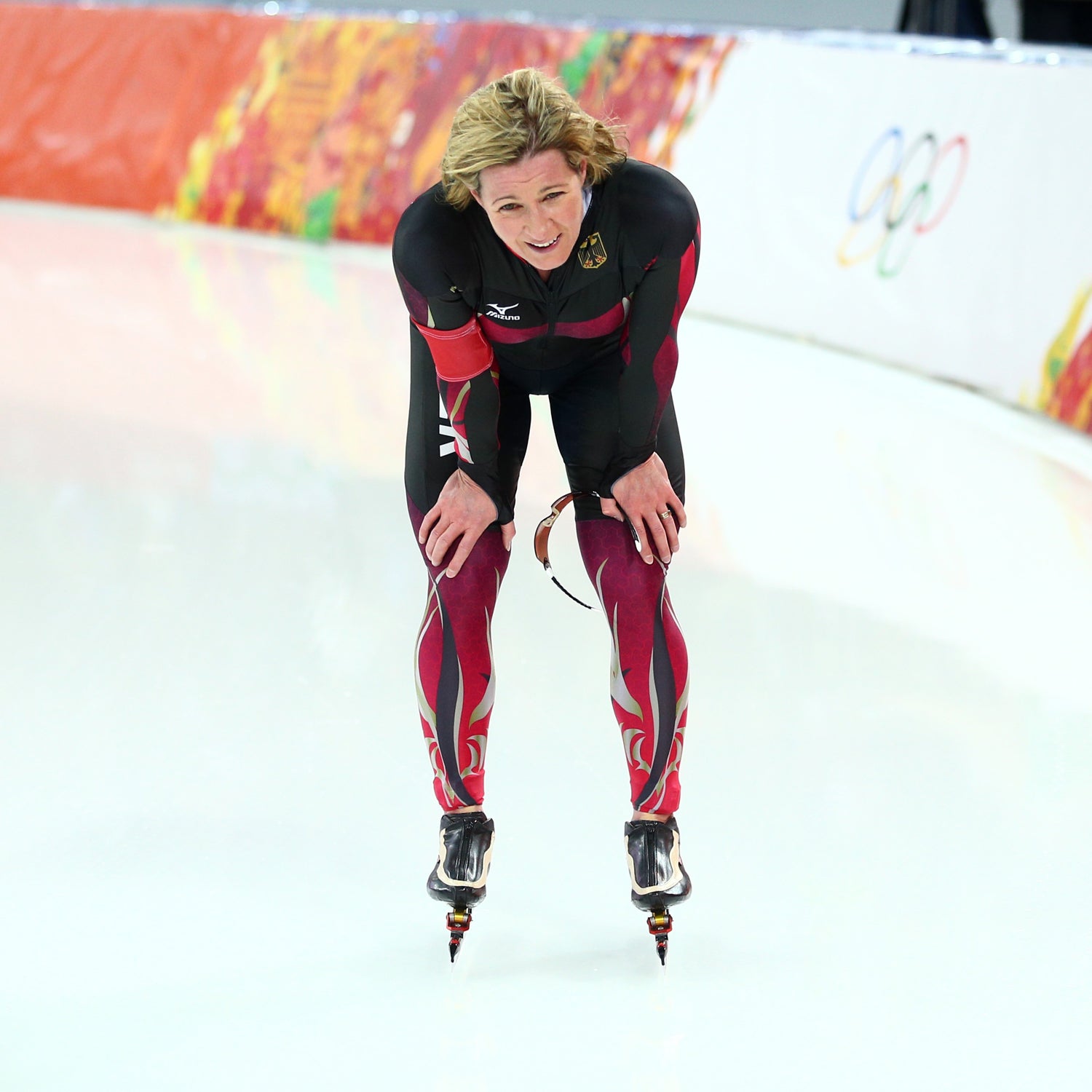Not all doping cases end when athletes test positive. In contentious disputes, athletes often appear before the Court of Arbitration for Sport (CAS), the Supreme Court of the international sports world. The CAS, established in 1983, handles some 300 cases per year, including high-profile hearings in Olympic sports like cycling and track and field. , , and have all appealed doping suspensions to the CAS within the past several years.
But now the CAS’s authority is threatened. In mid-January, a German appeals court when it ruled in response to a civil lawsuit filed by German speed skater Claudia Pechstein.
Pechstein, a five-time Olympic champion, recorded a positive biological passport test in 2009 and was banned for two years by the International Skating Union. (See more on Pechstein’s case below.) She appealed that suspension to the CAS, which upheld the ban. So she sued the ISU in German civil court, a highly unusual move that brought her doping case out of the realm of sports arbitration and into the German legal system.
In mid-January, the German court, the Oberlandesgericht, ruled that the structure of the CAS had robbed Pechstein of a fair hearing. In other words, the court ruled that the CAS arbitration clause on athletes—a clause that Pechstein and all other ISU athletes must sign to compete. That ruling could make the CAS irrelevant under European antitrust law.
To decide cases, the CAS relies on a pool of about 300 arbitrators, typically lawyers with experience in sports law and science. At issue is how the arbitrators are chosen. At the time of Pechstein’s appeal, in 2009, international federations like the ISU and the International Cycling Union were in charge of picking the majority of arbitrators, which the Oberlandesgericht says may have biased the CAS against athletes and in favor of federations. (For an excellent summary of the legal issues involved in the ruling, read from the Asser Institute at the Centre for International and European Law.)
Pechstein’s case will now likely proceed to the German Bundesgerichtshof, the country’s highest court, which could decide whether to uphold the ruling and whether the ISU owes her $4.6 million in damages for her 2009 suspension, for which she sued.
This isn’t the first time a European court has challenged the CAS’s authority—the Swiss Federal Tribunal, which exercises limited oversight over the court, forced the CAS to become independent of the International Olympic Committee in 1993. But the recent decision is unusual and could set a huge precedent by allowing German athletes who disagree with CAS decisions, particularly athletes whose cases were decided before 2014, when the CAS made several reforms to the arbitrator selection process, to challenge CAS decisions in civil court.
The legal community is divided on the wisdom of the ruling. “The court’s decision is very surprising,” says Matthew Mitten, a professor at Marquette University and a CAS arbitrator. “The real issue, in my mind, is, ‘Is this court set up to ensure that there is procedural fairness for all parties?’” Mitten believes that answer is yes. “I don’t think [the decision] is correct,” he says.
If the Bundesgerichtshof affirms the lower court’s ruling, it would have serious consequences for CAS’s future, says James Nafziger, a law professor at Willamette University and an expert on international sports law. “If they were to uphold the decision, I think it would potentially weaken the CAS,” Nafziger says.
Doping cases could ultimately be decided in civil courts across Europe, which cost more time and money than CAS arbitration and lack the sports-law expertise of CAS panels. That development would not be an obvious win for athletes.
And because the decision is likely relevant under European Union as well as German law, it would open the door for any European athlete to challenge CAS rulings. In fact, that may already be happening. Kostas Baniotis, a Greek high jumper, has indicated that he will sue the International Athletics Federation in Greece if his ban is upheld.
On the other hand, Nafziger says, it may force the CAS to further reform how it chooses arbitrators, perhaps by giving athletes a bigger vote in the selection process. “The athletes themselves should have at least a better idea of who is who and who is doing what,” he says. “It ought to be more transparent.”
Close-Up: Pechstein’s Case
The details of Pechstein’s case are convoluted, and her guilt remains an open question. In 2009, the ISU banned Pechstein after her biological passport showed evidence of blood manipulation. Unlike traditional doping tests, which look for banned substances in an athlete’s blood or urine, the passport looks for the effects of doping—in this case, abnormal concentrations of red blood cells. Pechstein, notably, was the first athlete in history to receive a ban from a biological passport screen, although dozens of athletes have since received such bans.
Pechstein’s passport indicated that her body had high levels of immature red blood cells, called reticulocytes. High numbers of reticulocytes are strongly linked to blood doping, but Pechstein has long maintained that her reticulocyte values were the result of a genetic disorder. Several doctors have testified that the disorder could have triggered the positive finding, and the head of Germany’s Olympic committee has recently supported Pechstein’s innocence. (The ISU has argued that her reticulocyte numbers were higher than the disorder could have caused.)
After exhausting her options at the CAS, Pechstein brought her case to the Swiss Federal Tribunal. The tribunal also rejected her case. Next, she sued the ISU in German civil court, claiming $4.6 million in damages from the 2009 suspension. “It’s an athlete’s constitutional right to choose his or her judge,” Pechstein’s lawyer . “My client was almost ruined by the wrongful acts of the International Skating Union. A case such as this must be dealt with by a civil court.” That’s where her case gained momentum.
In its January 15 ruling, the Oberlandesgericht argued that the way the CAS selects arbitrators may have violated Pechstein’s rights under German antitrust law.


